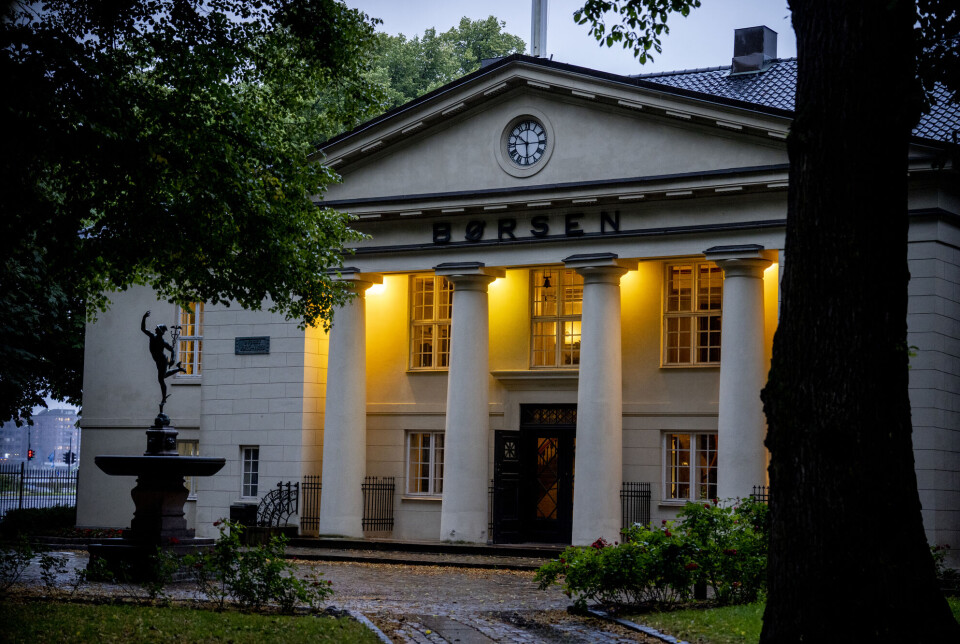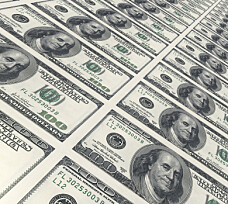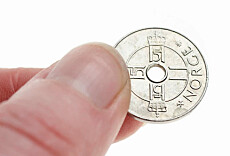
Wait out the stock market crisis if you can, one professor says
“If you can afford it and have faith in the company, then it's just a matter of staying calm and waiting,” advises Professor Kjell Jørgensen.
When economics professor Kjell Jørgensen from BI Norwegian Business School explains the stock exchange, he describes it like a fish market. There’s a buyer and a seller, only that instead of fish, the things that are being traded are shares, and that the stock exchange market is digital.
Fishermen sell their own wares at a market, but business owners don't come to the stock exchange to sell either their business or their goods, however.
“Not their goods, no. They are sold in shops, but a share is, after all, a stake in the company,” Jørgensen says.
A world without shares?
According to Jørgensen, a world without shares would have been like a car without oil.
“The engine will be completely ruined if the moving parts are not lubricated daily,” he says.
But where does the money go when the stock market falls?
“You don't take the money out of the stock exchange. It's just a saying. We say the money disappears from the stock exchange, but that only means that the value of companies has fallen,” he said.
The stock exchange has two important functions: providing liquidity and determining prices.
“It is important that you can get in and out of the market quickly: These investments represent liquidity. If you need the money to buy a holiday home, you have to be able to sell quickly. If the risk increases, you can get out quickly. You can also turn around and undo a stock purchase in a second,” he said.
The second — setting value — means that the stock value is formed on the basis of everyone's expectations about the price. It goes up and down based on these expectations, Jørgensen said.
He explains that people will sell their shares if the market is dominated by negative expectations regarding future profitability. If the entire stock market falls, it is because the market's overall assessment is that shareholders have less faith in future profits.
Less faith in the future
This is exactly what is happening all over the world right now. Values are falling, although many companies continue to make money.
“The share value is about faith in the future. For the companies that fall in value, it means that the market believes they will be worth less in the future than they are today,” Jørgensen said.
When the Norwegian government introduced a tax on the salmon industry, for instance, stock prices for salmon farming plunged.
“Finance only looks forward. The market believes much of the salmon industry’s profit will be paid out in taxes instead of going to shareholders. That consequently increases the risk, making future income uncertain. The market does not like uncertainty, so shareholders are selling shares,” he said.
Or perhaps people just wait?
“If your employer asks if you want your salary today or if you would rather wait until next year and get twice as much, with a probability of 20 per cent, what would you do? Presumably that will be too uncertain, right?" Jørgensen asks.
"So you'd rather take your salary today. Right now the markets reflect this uncertainty. Share values are falling. This doesn’t matter when it comes to the prices of the goods they sell. Share values reflect the belief in and expectations about the companies' ability to make money in the future — and right now that is being adjusted down,” he said.
Just wait it out
Increased interest rates also affect companies, the professor explains. Companies then have to spend more money to pay off loans. They get less money to pay the owners —the shareholders. It becomes less profitable to own shares, and people sell.
But if the stock market always goes up in the end, why are people selling, isn't it wise to act when prices are higher?
“Many people do exactly that,” says Jørgensen.
“But some companies will go bankrupt. You don't want to own shares in these companies. Still, if you have a long-term perspective, and this is what you should have, then you just have to be calm when this happens," the professor advises.
A lower stock market value initially means nothing for the companies themselves. It’s like your house: You don't notice the prices are falling unless you sell.
"But in the longer term it may become difficult for companies to raise more money, in as much as financing can be more expensive as the company becomes less valuable,” Jørgensen says.
But what happens to the companies when expectations fall? Are they less valuable?
“Investors are only interested in owning shares to get a return in the form of price appreciation or dividends. When values fall, it is because shareholders think the company will do worse and earn less. Then the shareholder will earn less. When more people think it will go badly than people who think it will go well, there are more sellers than buyers. Then the price drops,” he said.
All fluctuations aside, why does the stock market always go up from a historical perspective?
“When we look at historical developments on the stock exchange, we are really looking at all the value creation that has taken place in a large part of the private sector — the part that makes up the largest companies,” Jørgensen said.
So why does it always go up in the end?
“Because the market is always right. Companies have managed to deliver value creation. It's a bit like looking at Norway’s gross national product, i.e. the country's overall value creation,” he said.

Spreading risk
Essentially, the stock market is not completely a zero-sum game, where someone loses and someone wins, Jørgensen said, in part because it always goes up.
“It’s perhaps a bit more of a zero-sum game for people who buy and sell over the short term, but over the longer term it is wise to buy and then hold onto the shares in order to share in the value that companies create,” he said.
Unless, of course, they go bankrupt.
“That’s why you have to have a broad portfolio with a number of different companies. Then you benefit from the value created by this range of companies,” he said.
But is it better to have a broad portfolio than an index fund, which includes many companies?
Jørgensen said most people will see the same benefits from the two options.
“Index funds mirror the market with even more companies. Some index funds mirror the entire stock exchange, others have segments of the market,” he said.
Jørgensen also explained why companies go on the stock exchange to get more capital.
First of all, there’s a difference between the primary and the secondary market, he said.
“The stock exchange is the secondary market. If you have a business and need more money for investments, you can create new shares. This is called issuing shares in an issue, i.e. expansion. Then you sell pieces of your company to investors,” he said.
“This is how you get money to develop the company. Investors are gambling that you will do well and are essentially lending your company money. When the company is listed on the stock exchange, the investors can sell the shares they have received against the loan. If the investment is good, share values will rise and investors will make a profit,” he said.
Translated by Nancy Bazilchuk
———
Read the Norwegian version of this article at forskning.no


































